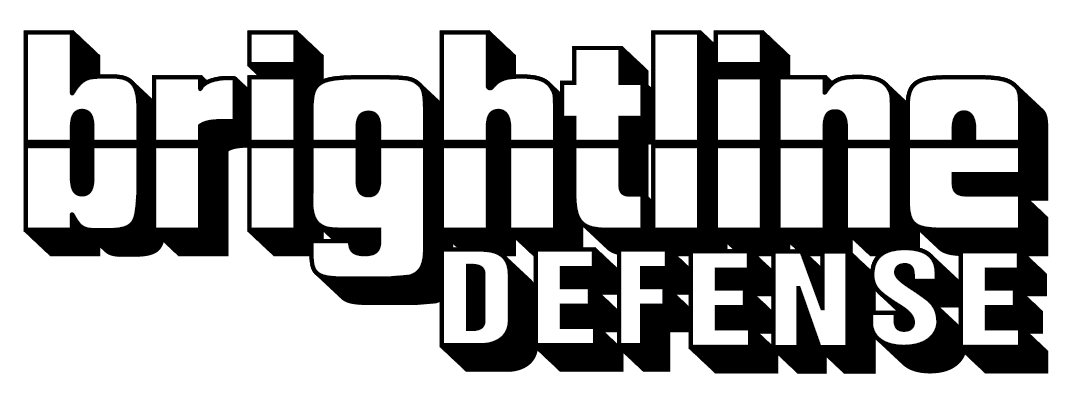Brightline Reports
Brightline combines policy and legal research, on-the-ground interviews, and expert analyses to shine light on environmental justice issues. Our reports bring attention to the environmental conditions and equity issues that frontline communities face, as well as opportunities to create more sustainable, inclusive economic growth.
Our recent reports include:
Rewiring For justice |cOMMUNITY sTORYTELLING tHROUGH pODCASTING | OFFSHORE WIND: A PATH FORWARD | Air quality: pass the microphone | Air Quality: Little Room To Breathe | Offshore Wind: Transitioning to a Green Economy | Local Governance: TOWARD EMPOWERMENT | local hire: Putting Local Hire to Work | Local Hire: Failure of Good Faith
Rewiring for Justice: How California Can Power Equitable Transmission (2025)
New and upgraded transmission is needed to guarantee access to clean, reliable, and affordable power. This report provides information, strategies, tools and case studies that California policymakers, regulators, and other interested parties can use to support equitable transmission planning and development that avoids harms and maximizes benefits for underserved communities and Tribal Nations, collectively referred to as environmental justice (EJ) communities. California’s leadership on this is especially crucial with a federal administration rolling back environmental initiatives
Community Storytelling Through Podcasting (2024)
Storytelling is a vital cultural communication tool.
The Brightline Podcast highlights the voices of community leaders and advocates for underserved populations and monolingual communities. These leaders make Brightline Defense Project’s work to address historic environmental injustices possible.
Environmental justice issues impact communities across California, but these issues and their danger to health and safety will continue to be heightened as climate change rages on. It is critical that frontline communities have access to resources; and that these resources are available across languages, and in all forms.
Offshore Wind: A Path Forward (2023)
EMPOWERING COMMUNITIES IN PACIFIC OFFSHORE WIND DEVELOPMENT
Offshore wind energy is critical to achieving California’s 100% renewable energy goals. In addition to providing significant workforce development and equity opportunities during construction, offshore wind on the Pacific Coast of the United States can benefit transmission, grid infrastructure development, and the larger community. This report will give an overview of the current state of floating offshore wind development on the Pacific Coast, then focus on environmental justice and community engagement considerations for current Bureau of Ocean Energy Management (BOEM) -designated Call Areas and Wind Energy Areas (WEAs). This report highlights concerns that tribes and local organizations have raised but does not intend to speak for the communities discussed.
Air Quality: Pass the Microphone (2023)
Poverty and lack of access to public resources contribute to social vulnerability among residents in low-income communities and excessive environmental burdens for those same groups. Low-income residents, specifically Single-Room Occupancy (SRO) Hotel tenants, have endured disproportionate urban environmental burdens, which negatively impact their health and overall quality of life. Income and resource disparities in the Bay Area, exacerbated by redlining and de facto segregation, have forced low-income communities of color to live in dense housing stock with high concentrations of pollution that can cause multiple public health issues. While frontline communities deal with these social and economic burdens and live in conditions that may harm their long-term health, they face barriers advocating for better resource allocation from local government agencies.
Air Quality: Little Room to Breathe (2021)
EVALUATING AIR QUALITY & HEALTH IMPACTS IN SAN FRANCISCO’S SINGLE ROOM OCCUPANCY (SRO) BUILDINGS
Emerging from the pandemic and 2020 wildfire season, nonprofit Brightline Defense releases a first-of-its-kind report studying climate change impacts upon tenants living in some of the nation’s densest and poorest housing conditions. As wildfire risk escalates with a deepening drought and historic heat waves in 2021, Single Room Occupancy (SRO) communities are disproportionately affected due to little access to indoor air filtration, personal protective equipment, preexisting health conditions, and crowded living conditions.
Offshore Wind: Transitioning to a Green Economy (2020)
OFFSHORE WIND DEVELOPMENT IN CALIFORNIA
As California begins the transition to a green economy, Brightline addresses equity concerns for environmental justice communities and highlights the opportunities of renewable energy through our newly published policy report. In the midst of a global pandemic and changing climate, offshore wind offers a silver lining for California’s frontline communities in need of economic recovery and cleaner air.
Local Governance: Toward Empowerment (2018)
COMMUNITY REPRESENTATION & GOVERNANCE IN SAN MATEO COUNTY
Expanding its grassroots reach throughout the Bay Area, Brightline releases its first-ever policy report beyond San Francisco: “Toward Empowerment: Community Representation and Governance in San Mateo County.” Representing twelve months of on-the-ground research and in-person interviews, this policy report blends policy and legal expertise to analyze the needs and governance of three San Mateo County communities: East Palo Alto, Belle Haven, and North Fair Oaks.
Local Hire: Putting Local Hire to Work (2012)
COMMUNITY DRIVEN. QUALITY JOBS. STRONG POLICY.
Brightline’s local hiring policy efforts emerged naturally from our environmental justice work in San Francisco’s most unemployed communities. Through these relationships, we gained our first exposure to the City’s long-standing “good faith” approach to local hiring. As early as 2009, we began promoting job guarantees instead of just “good faith” for residents of San Francisco’s environmental justice communities on clean energy projects. We became fully invested in efforts to create a bright-line of opportunity for local workers on all city-funded public works.
Local Hire: The Failure of Good Faith (2010)
LOCAL HIRING POLICY ANALYSIS AND RECOMMENDATIONS FOR SAN FRANCISCO
Co-created with Chinese for Affirmative Action, this report first researches the unique nature of the building and construction workforce, and summarizes policies and programs that affect local hiring on public projects. It then presents data on who has worked on recent San Francisco projects and assesses the composition of the construction workforce and trade unions. Next, it offers three models of local hiring policies from other jurisdictions, before finally presenting key findings and recommendations for policy makers to consider in moving forward with a new approach to targeted community hiring in San Francisco.









